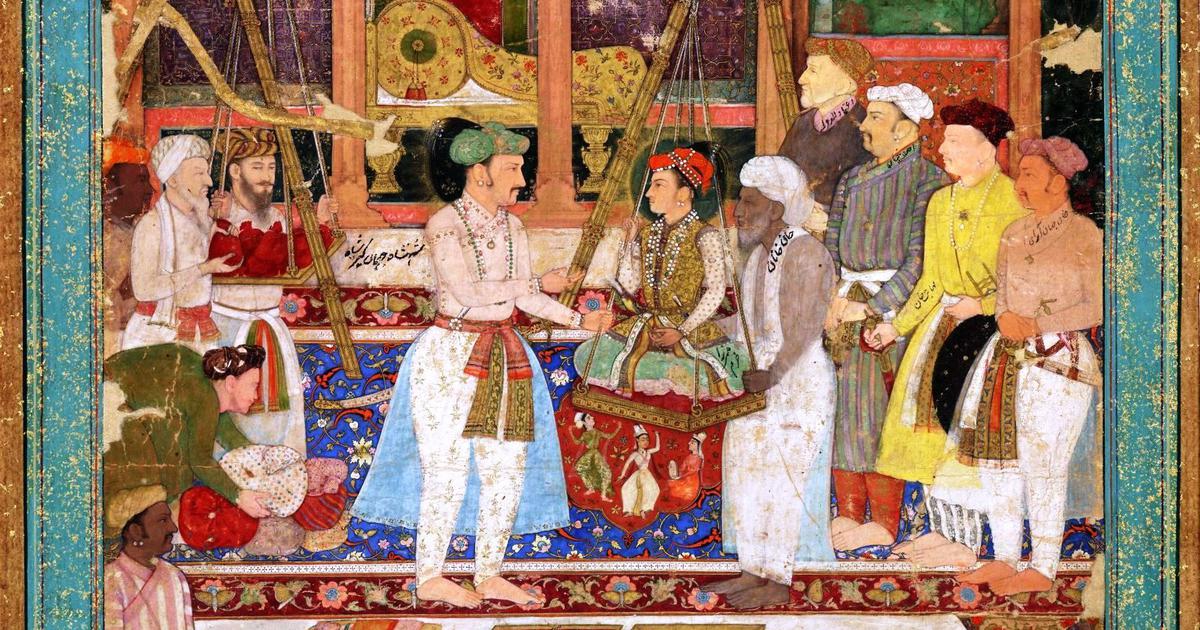
Emperor Akbar and the Jains
By Justice Katju
Mughal Emperor Akbar ( 1542-1605 ) realised that India was a country of great diversity, having many religions. Hence he wanted to know about all these religions, since he believed that a ruler must know his people. Consequently, he invited scholars of all religions to explain their doctrines to him, either in his own private chamber, or in the Ibaadatkhana.
https://en.wikipedia.org/wiki/Ibadat_Khana
Among these religions of India was Jainism, which was largely prevalent in western and parts of northern and central India e.g. Rajasthan, Gujarat, Punjab, Delhi, western Madhya Pradesh, etc
Akbar’s contact with Jains began as early as 1568, when Padma Sunder who belonged to the Nagpuri Tapagaccha was honoured by him.
As mentioned in Dr. Ishwari Prasad s `The Mughal Empire , the Jains, and their philosophy of tolerance and non violence ( ahimsa ), had a great influence on the Emperor.
Having heard of the virtues and learning of Hir Vijaya Suri, the renowned Jain saint who lived in an ashram in Ahmedabad, the Emperor sent an invitation to him in 1582 through the Mughal Viceroy at Ahmedabad. Hir Vijay Suri accepted the invitation, but when he was offered money by the Viceroy of Gujarat to defray the expenses of the journey from Ahmedabad to Fatehpur Sikri ( the then Mughal capital ) he refused, as he said that was against the Jain principles.
The delegation consisting of Hir Vijaya Suri, Bhanu Chandra Upadhyaya and Vijaya Sen Suri started on their journey and walked on foot all the way from Ahmedabad to Fatehpur Sikri, begging alms from people on the way ( as was the Jain custom ). They were received at Fatehpur Sikri with great honour befitting imperial guests.
Hir Vijaya Suri first had a discussion with Abul Fazl. He propounded to him the doctrine of Karma and an impersonal God.
Later, when introduced to the Emperor he defended true religion, and told him that the foundation of faith should be daya (compassion) and that God is one though he is differently named by different faiths.
Jainism, with its doctrine of non-violence, made a profound impression on Emperor Akbar and influenced his personal life.
The Emperor received instruction in dharma from Suri who explained the Jain doctrines to him., including the Jain philosophy of Anekantavad, which stands for tolerance towards other religions
https://timesofindia.indiatimes.com/blogs/satyam-bruyat/anekantavad-of-jainism/
Hir Vijay Suri discussed the existence of God and the qualities of a true guru, and recommended non-killing ( ahimsa). The Emperor was persuaded to forbid the slaughter of animals for six months in Gujarat, to abolish Jaziya and the confiscation of the property of deceased persons, and Shulka, a tax on pilgrims, and to free caged birds and prisoners.
So impressed was Emperor Akbar by Jainism that he curtailed his food and drink, abstained from flesh diet altogether for several months in the year, and expressed his desire to give it up altogether, as it had become repulsive to him. He renounced hunting and fishing, which were his favourite pastimes, and released most prisoners and caged birds. Slaughter of animals was prohibited on certain days and ultimately in 1587 for about half the days in the year.
The Jain delegation stayed for four years at Akbar’s court, and left for Gujarat in 1586. Hir Vijay Suri obtained various concessions for his religion. The Emperor is said to have taken a vow to refrain from hunting or fishing, and expressed a desire to leave off meat- eating for ever.
When the Jain delegation was leaving for Ahmedabad in 1586, the Emperor presented to Hir Vijay Suri Padma Sundar scriptures which were preserved in his palace. He offered them to Suri as a gift, and though Suri was reluctant to accept them, he was pressed by the Emperor to accept them.
If India is to progress it must follow the path of suleh-e-kul ( universal toleration and respect to all religions ) shown by the great Emperor Akbar, and the Jain philosophy of Anekantavad
